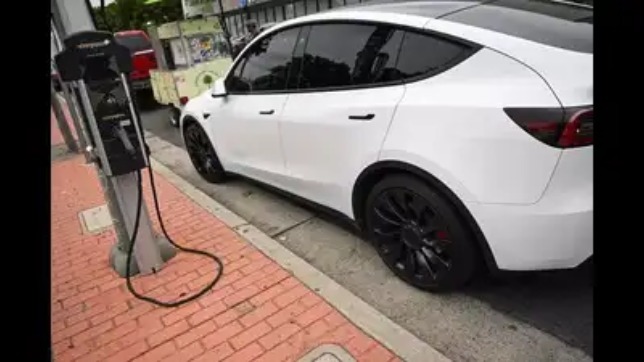FICCI report identifies ₹16,000 crore capex requirement for public EV charging infrastructure in five years
Tamil Nadu’s vibrant electronics and electrical manufacturing industry is now moving into electric vehicle charger manufacturing, spurred by growing demand for fast-charging. India will need to invest ₹16,000 crore over five years to cater to public EV charging demands, says the FICCI EV Public Charging Infrastructure Roadmap 2030 report.
Market leaders such as Delta Electronics India and Eaton are continuously developing a variety of EV chargers ranging from 60 kW to 350 kW to address the increasing demand for multi-gun and high-capacity charging solutions that will be efficient for both commercial and personal vehicles.
“We are planning to enter the 60 kW and the 120 kW chargers very soon.”. We are doing design work since we would like to develop special features that can be marketed both within and outside of India,” says Syed Sajjadh Ali, MD – Electrical Sector, India, Eaton. He further mentioned that Eaton is looking to introduce its own EV chargers in the 60 to 120 kW range by this year-end, with a 240 kW charger likely to come through in early next year.
Delta Electronics India, an early entrant in the EV charger market, is also expanding to meet changing demand. “We started working on EV chargers early in 2017-18. The initial demand was for smaller capacity solutions, like AC chargers and the Bharat 30-kilowatt chargers,” says MD of Delta Electronics India, Niranjan Nayak. “Although 60 kW was our biggest DC product until last year, we launched a 180-kW charger and are prepared with a 350-kW offering as well in preparation for the growth in the market,” he further adds.
The movement towards quicker chargers is prompted by consumer demands for low wait times when traveling. “Individuals do not desire to wait more while on the move so higher kW products are sought after,” Nayak clarifies. Chargers with dual charging guns are also being designed by manufacturers to charge multiple vehicles simultaneously — one of the requirements in the expanding e-car and e-bus segment. “The greater you boost the capacity, 350 kW or 500 kW in the future, there can be two or three guns to charge the vehicles simultaneously. This is the second requirement which is looming,” he further adds.
Tamil Nadu continues to be a leader in EV and EV infrastructure production. Tamil Nadu is one of the top five states in terms of the number of EV charging stations installed by oil marketing companies — with 1,448 — after Uttar Pradesh (2,561), Maharashtra (1,595), Karnataka (1,516), and Rajasthan (1,482).
The state is also seeing the rise of EV charger production, ranging from new-startups like IIT Madras-incubated Plugzmart to new companies like the joint effort of Epic Energy and Fenfeo Automotive, which is planning a Coimbatore manufacturing facility.
With global supply chains facing uncertainty, local production is the priority for companies. “We have a workforce of over 50 engineers dedicated to EV charging within our India R&D division, which works together and shares platforms with our global R&D,” says Nayak. Dedicated EV charger production lines have also been established at the Krishnagiri plant, with a present capacity of 1,000 units per month — scalable depending on demand.”.
EV charger manufacturing is a natural next step for Tamil Nadu’s strong EV ecosystem. The state currently manufactures 70% of India’s two-wheeler EVs, with a manufacturing capacity of 10 million units installed.



